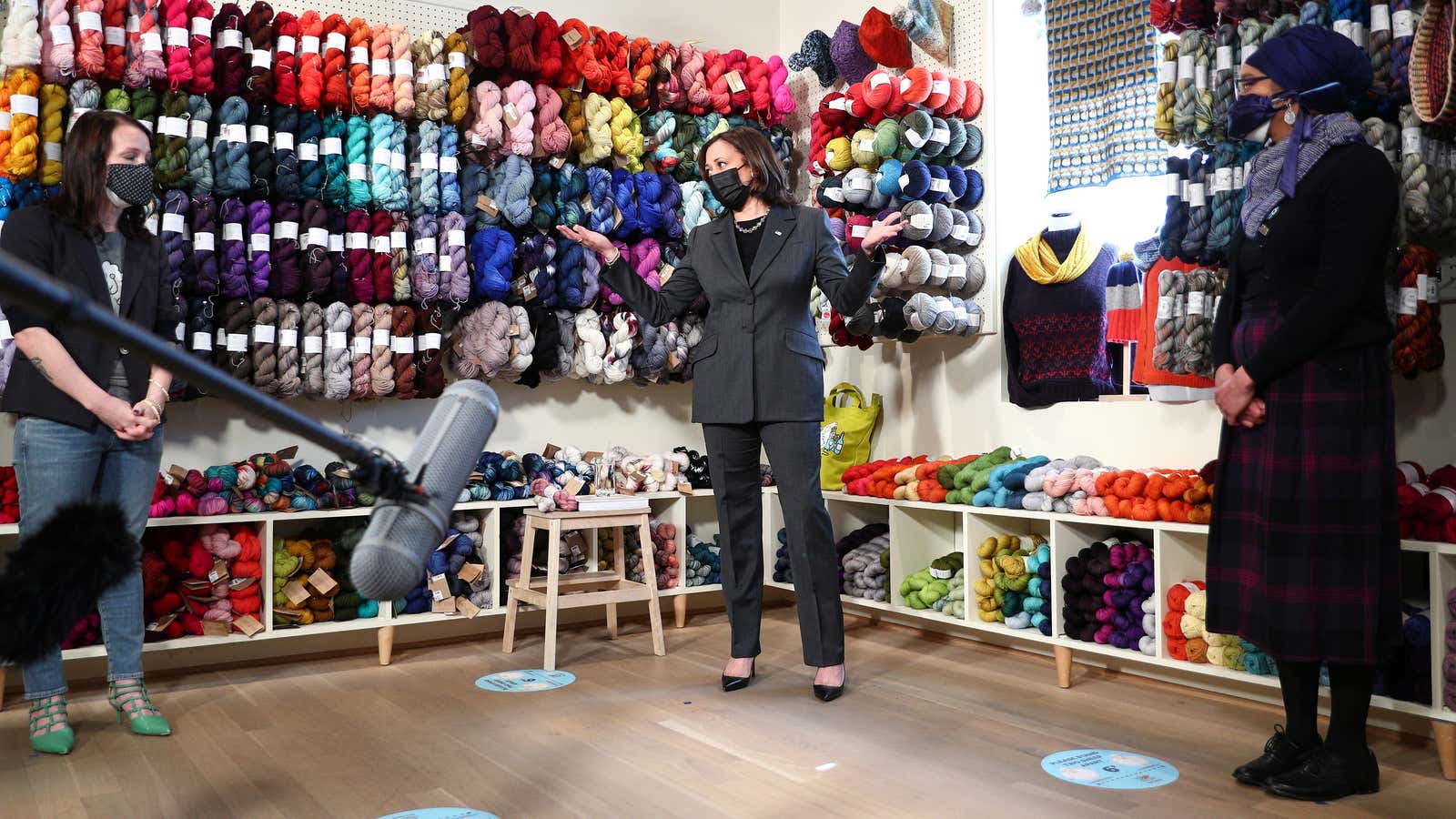Contractors, freelancers, and sole proprietors in the US can now access considerably larger loans from the Paycheck Protection Program (PPP), following a new rule issued by the Small Business Administration (SBA) on Wednesday. The rule allows entrepreneurs without employees to calculate their loan eligibility using gross income rather than net income, making the loans far more generous, especially for businesses with little or no profit.
The change was first announced by the Biden administration last week as part of a package of new measures designed to improve access to loans for small businesses. That included a 14-day period in which only companies with 20 employees or fewer could apply for PPP loans. Sole proprietors were eligible to apply in that period, but have been waiting on the SBA to clarify the details of the new arrangement to ensure that they received the larger amounts. They’re now left without much time to take advantage of the 14-day window the administration announced, since the SBA’s rule comes halfway through it. (Businesses without employees can still apply after the 14-day window ends, but after that date companies with more than 20 employees will be able to, too.)
What expenses are eligible
The rule also clarifies how sole proprietors who calculate their eligibility using gross income can spend the loans in order for them to be forgiven, and lays out new criteria for auditing applications. Companies without employees can spend the money to cover a number of expenses, including rent and utilities, and can compensate themselves up to $20,833. (Businesses with employees must spend 60% of PPP loans on payroll to be eligible for loan forgiveness.)
New rules for audits
The rule also lays out new criteria for whose applications might be subjected to review. The SBA does not require smaller borrowers to certify that they are applying in good faith, which affects their eligibility for auditing. But the rule released this week stated that sole proprietors who report annual gross incomes of more than $150,000 may be eligible for SBA audits and will not be assumed to have applied in good faith.
The new SBA rule also removes prior eligibility restrictions on business owners who have been convicted of non-financial felonies within the last year or are delinquent on student loans.
“The rule change is a great and long-overdue correction to provide PPP support to sole proprietorships, which represent 24 million of America’s 30 million small businesses,” said Karen Mills, a former administrator of the SBA during the Obama administration and a senior fellow at Harvard Business School. “Crucially, a very high percentage of sole proprietorships are owned by women and entrepreneurs of color. So this change will also help get capital where it is most needed.”
No change for those who’ve already received loans
The new formula does not apply retroactively to those who have already received PPP loans.
“Any sole proprietors who got smaller loans before (based on their net income on their tax returns), or who were denied loans entirely, are out of luck,” Mills told Quartz. “These sole proprietors should either have an opportunity to reapply or ‘plus up’ those prior loans to what they would be under this new rule.”
The final deadline to apply for PPP is set for March 31.
